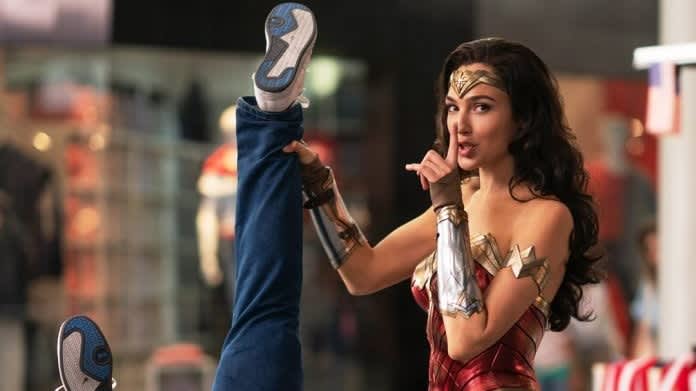Gal Gadot stars as Wonder Woman in Warner Bros. “Wonder Woman 1984.”
Warner Bros.
The movie theater industry is in trouble.
“Tenet” was supposed to relaunch the U.S. box office, to prove that Americans are confident in coronavirus safety measures and eager to return to cinemas. It didn’t.
The muted opening weekend of the Warner Bros. film, which is estimated to have been between $10 million and $12 million after stripping out preview screenings from the reported $20 million, didn’t give the studio enough optimism to keep its next major blockbuster “Wonder Woman 1984” in October.
Instead, on Friday, the studio announced the Gal Gadot-led superhero flick would move to Christmas.
“I think Warner Bros. saw that ‘Tenet’ numbers in the U.S. were okay but not great,” Eric Handler, managing director of media and entertainment equity research for MKM Partners, said. ” Until New York City and Los Angeles open it is going to be challenging to put up big box office numbers.”
Handler noted that the remaining 30% of theaters that remain closed during the pandemic have above average ticket prices, which would normally have a positive impact on revenue.
With “Wonder Woman” pushed to winter, the next Hollywood blockbuster won’t hit theaters until “Black Widow” arrives in November.
“The absence of another mainstream blockbuster for the next eight weeks lengthens exhibition’s pathway to recovery,” Shawn Robbins, chief analyst at Boxoffice.com, said.
While moviegoers enjoy lower-budget films, it is the big-budget features that drive the most traffic to cinemas. During the pandemic, these must-see blockbusters are even more important, as consumers need more incentive to leave the safety of their homes.
Movie theater chains like AMC, Regal and Cinemark have altered their operations to increase sanitation, install state-of-the-art air filtration systems and retrain employees for guest interactions. Still, those policies aren’t always enough to persuade couch-sitters to become moviegoers.
“This can’t be what theaters imagined after being asked to upgrade all their facilities,” Jeff Bock, senior analyst at Exhibitor Relations, said. “Playing small ball for two months simply isn’t going to work for most smaller cinemas.”
Bigger cinema chains, too, are reliant on these films. Instead, the month of September and October will be filled with lower-budget horror films, a number of low-budget dramas and a handful of romantic comedies.
“Simply put, this fall line-up is a fumble,” Bock said. “I’m not sure how theaters can even operate even close to normal with these lackluster titles coming down the line.”
Major movie theater chains have been able to secure enough capital to remain solvent through the rest of the year and into 2021. AMC, in particular, was in danger of bankruptcy before securing a new debt deal. Smaller, independent theaters may not have the same resources.
On Friday, shares of AMC closed down around 2.5% at $5.79, Cinemark shares ended down 5.5% at $12.04, and Marcus Theaters shed 7.4% to close at $13.25.
“Not having ‘Wonder Woman 1984’ on the slate could give some smaller films an opportunity to catch people’s eyes,” MKM’s Handler said. “Notable new films will definitely be sparse for the next six to seven weeks. October does have ‘Candyman’ and ‘Death on the Nile’ as more mid-budget types of titles.”
“Restarting the industry is a challenge and will have both some good and bad moments,” he said. “Normalization is going to take a while.”
